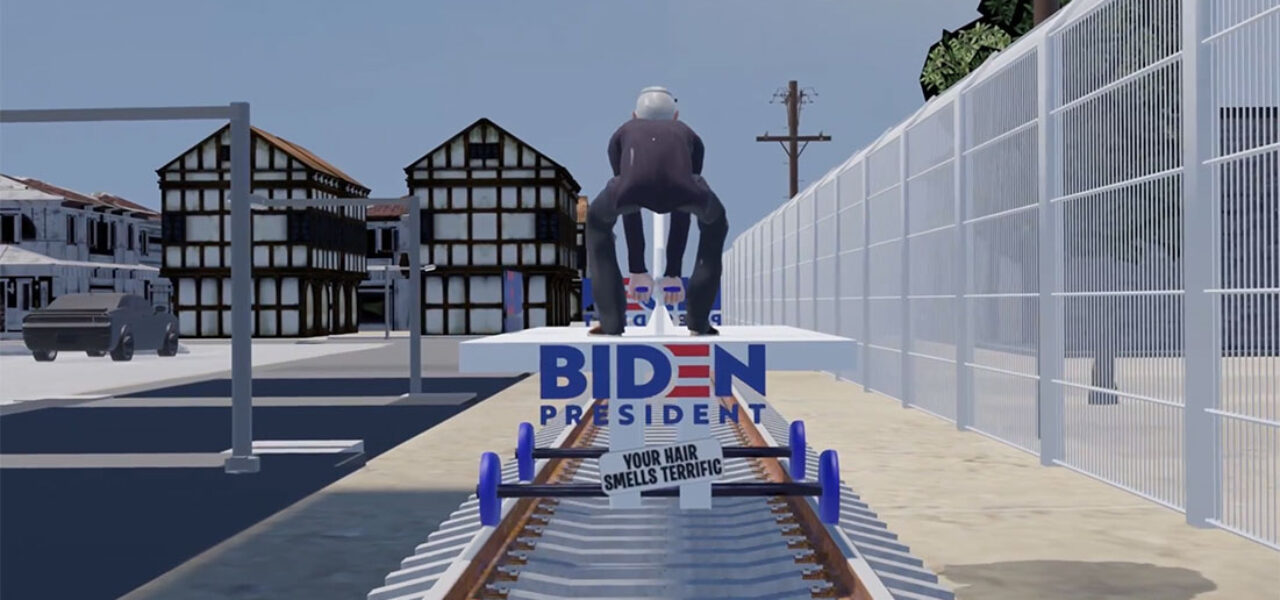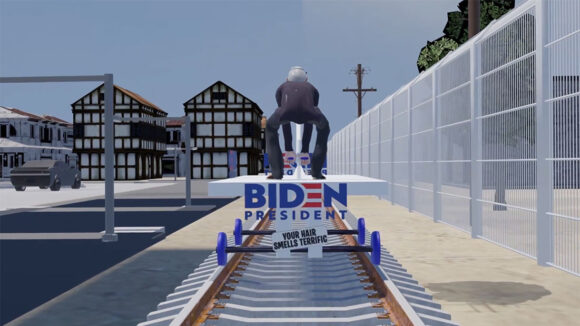

Judge Rejects Trump’s Attempt To Avoid Copyright Suit Over Animated Campaign Video
Having lost the legal arguments over the election result, Donald Trump has now been dealt another blow in court. The ex-president has lost his attempt to dismiss a copyright lawsuit stemming from an animated campaign video that used Eddy Grant’s 1983 song “Electric Avenue.” U.S. District Court Judge John Koeltl issued the decision last week.
What was the video? On August 12, 2020, Trump tweeted a minute-long cg video created by Texas-based animator Something Wicked. It showed a slick train, representing the Trump campaign, speeding by as a slow handcar, manually operated by Biden, trundles behind. “Electric Avenue” plays on the soundtrack alongside a snippet of a speech by Biden.
How did Grant react? The day after Trump shared the video, the singer sent Trump a cease-and-desist order, claiming copyright infringement. As the tweet stayed up, Grant’s lawyers filed a suit against the then-president’s campaign weeks later. Twitter also removed Trump’s tweet.
What is Trump’s defense? Trump filed a motion to dismiss on the grounds of “fair use.” His lawyers argue that the video’s use of “Electric Avenue” is comedic and political, and therefore “transformative”: its purpose is different from the original song. They add that the video wouldn’t have affected sales of Grant’s song, as the two appeal to different markets.
Why wasn’t the judge convinced? Crucially, he noted that while the video is indeed political, it doesn’t use the song as part of that political message — not to the extent required to make it transformative. It ridicules Biden through the animation and speech snippet alone. Koeltl described the use of the song as “a wholesale copying of music to accompany a political campaign ad.”
He also established that the other criteria used to determine fair use, such as how the potential market for Grant’s song may be affected, favor the singer at this stage.
So what does this mean? Grant certainly hasn’t won the lawsuit. Koeltl has merely rejected Trump’s dismissal motion, which means that the suit can proceed. Koeltl wrote that Trump can reassert the fair use defense at the summary-judgment stage.
Why is this important? If the ruling goes Grant’s way, it could send out a clear message that creative works can’t simply be copied wholesale in a political context. This would be welcome to musicians and other artists.
The suit also draws attention to how a piece of visual media relates to its soundtrack — how the two combine to create meaning. This holds interest not just for content creators who claim fair use and their lawyers, but for anyone who makes animation or video works.
